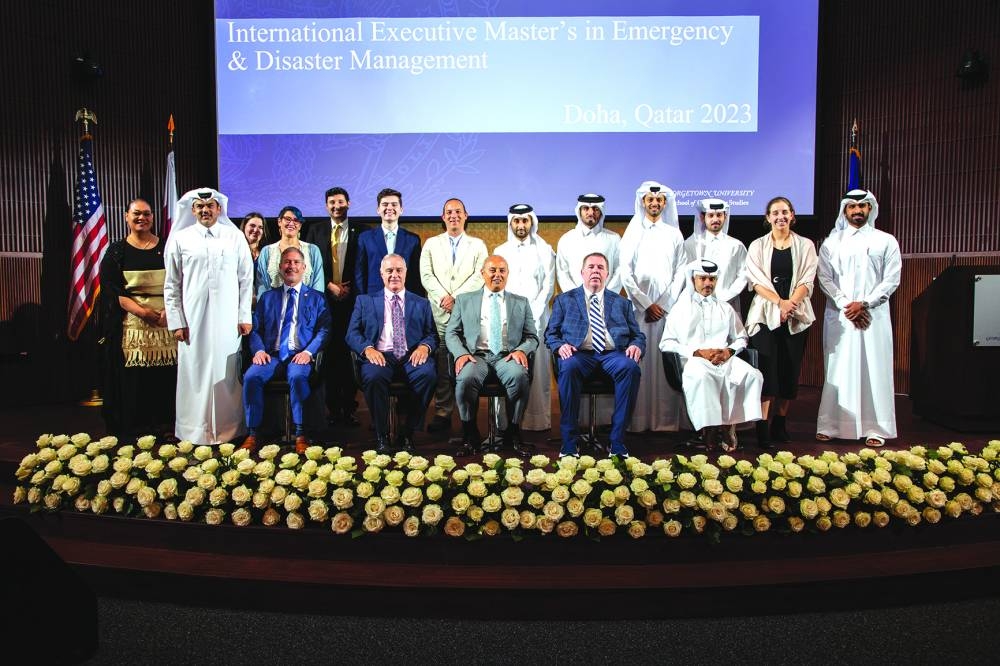A closing ceremony was held at QF partner Georgetown University in Qatar (GU-Q) to honour 12 graduates of the International Executive Master’s in Emergency and Disaster Management (IEDM) degree programme.
The IEDM programme is offered by Georgetown University's School of Continuing Studies (SCS) in Washington, DC, in collaboration with GU-Q's Office of Executive and Professional Education.
The sixth cohort of graduates, comprising professionals from healthcare, law enforcement, and social services, have acquired essential skills and expertise in disaster preparedness and response through five intensive residencies in five countries, and immersive experiences and interactions with leading experts.
Attendees of the closing ceremony included friends, families, and representatives of the Qatari government, including HE the Minister of Education and Higher Education Buthaina bint Ali al-Jabr al-Nuaimi.
Dr Tim Frazier, faculty director for the IEDM programme in Washington DC, opened the event. GU-Q dean Dr Safwan Masri, said: "Your master’s degree in Emergency and Disaster Management opens a new stage in your professional careers.”
Law enforcement and security expert Falah al-Dosari delivered a keynote address. His remarks highlighted the value of collaboration and foresight in achieving excellence in emergency and disaster management. During the ceremony, al-Dosari was also recognised for his continuous support of the programme.
As part of the event, a student exhibit featuring capstone projects highlighted original research on key issues in global incident management, underscoring the essential role of emergency response education in ensuring community safety during disasters.
For Abdulla Alkaabi, a Fire Safety Engineer with the Qatar Civil Defence, the residency in Jordan which included a trip to the Za'atari Syrian refugee camp went beyond classroom learning to offer a hands-on look at the disaster management cycle. “This programme not only gave us an idea of much it takes to manage any given disaster, but also how to manage the situation after the disaster. Sheltering people isn’t enough, you have to work to make their lives better.”
Lavinia Clara Taumoepeau-Latu, a Fulbright scholar who has had experience working for the government of Tonga in response and recovery stages for Tropical Cyclone Gita which hit in 2018, presented her capstone project on contextualizing disaster management for district and town officers in Tonga. “The residencies were excellent opportunities to gain new insight on how emergency management strategies and practices happen in various parts of the world,” she said.
Nasser AlSubaey, a first lieutenant software engineer in the National Command Center of the Ministry of the Interior, said one of the most important learning outcomes from the project was that there should be readiness to handle any crisis or disaster during major events.

The graduates with other officials at the closing ceremony.
